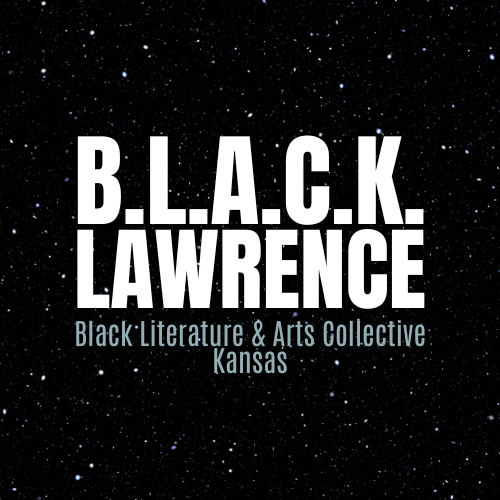
“We live in a society that’s systemically & generationally breaking apart Black & Brown families through detainment, overwork, & death. The separation of mother & child, & the devaluation of Black love & connectedness, is what’s at play.”
-Alex Kimball Williams
More about her “Police Brutality Song” of the Stories For All digital storytelling project below
I began collecting my family’s oral histories 6 years ago.
I am my family’s archivist & confidant. When interviewing my family, my questions aren’t the usual ones, like where were they born, where did they go to school, who did they marry. Instead, I inquire about what makes them them, & us us.
“What does it mean to be Eleanor? Or to be a Kimball (surname)?” “Who are you grieving?” “If your person could come back for one day, what would you guys do?” “What’s a memory that makes you smile instantly?” “What was your baby’s first word?” “If you could go back in time & experience something again, what would that be?”
These questions generate a different, authentic, raw vision of the person. I see my line of inquiry like a cave painting of what’s truly important rather than the bible’s catalogue of men’s names & what they owned & owed. The difference between knowing someone was a nurse for 30 years- or that the best moments in their life were when they were creating holiday magic for their kids.
Oral histories & stories connect us to one another, & eventually I noticed that injustice connects us too. The unfair mugshots of police brutality victims feel familiar. We feel this automatic kinship of: “We were forcibly brought here for the same reason we are forcibly removed.”
Beating, lynching, shooting, suffocation, captivity, medical malpractice, bombing, r*ping, burning, starving - these are all the weapons of white supremacy to stamp out Black livelihoods & break apart families & communities. These are the tools of the master’s house, as is forced labor, lost earning potentials, & more. I have found white supremacy to be wildly uncreative.
I verified in my family’s oral histories, evidence of the Post-Traumatic Slave Syndrome (DeGruy, 2005), & I noticed how relatable our content was for other Black families, too. I also saw this thread we’ve all experienced of biased media representation, hyper-surveillance, unfair court proceedings or rulings, & the devaluation of Black families & community connections.
There’s no way individuals can be treated with such inhumanity without the belief that we must not love each other. Part of the justification for mass murder of animals is that they lack consciousness or capacity for compassion that the white man mistakenly recognizes in himself. Coupled with what we know from the University of Virginia (Trawalter, et al) around the pervasive belief that Black bodies have fewer nerve endings & therefore we feel less pain- & the owning class’ praxis that Black bodies were “made for” hard labor- we can imagine the correlations of Black bodies not only feeling, but loving, less. And that correlation of being “made for” hard labor as well as emotional hardship of all types.
I took the same line of questioning I had for my family’s oral histories, & applied them to a sample of 15 families living in Kansas. All had experienced police brutality whether physically beaten or murdered. My parameters were 1970-2019. I added a few questions to gather data around how improper media coverage & police reporting impacts the ability of families to healthfully grieve & navigate their loss.
My questions investigated collective perceptions around policing & senses of safety & belonging, & how these shift as a result of police brutality happening in close proximity. I also learned more about what helped, or would have helped, families navigating grief that carries components of ongoing threat, as well as society’s seemingly uncaring stance on their loss.
In other words, how does the loss of their loved ones impact their families & communities?
Because research shows that attachments matter- & maternal separation may be more detrimental for your brain & development than a TBI (traumatic brain injury). Forced family separation is widely regarded as the greatest catastrophe for your mental health, & yet we’re hardly talking about all the ways this is disproportionately occurring for families of color, particularly for refugees or over-policed communities. We also aren’t talking enough about how this affects the parents of murdered children, including adult children. For mothers, forced separation can lead to PTSD, panic attacks, depression, & more.
Aurélie Athan, a clinical psychologist who studies motherhood at Columbia University, shares, "A mother’s and a child’s experience are opposite sides of the same coin. To leave the women out of the research … is to lose 50% of the story.”
The United States has regularly diminished the connections of Black families, from selling families to different buyers during enslavement, to the war on drugs which instigates & criminalizes Black users, to the indiscriminate shooting & suffocating deaths of Black sons & daughters. And generationally, we’ve been primed to consider these atrocities as inevitable.
I want to know: how does this affect Black methods of love & connection? What happens when mothers birth mothers who birth mothers who are continually losing children to the evil that thrives all around them? And how is our imagination stunted as we think about Black futures?
“Drinking to forget the child sold down river" resounds my brother Tai Amri, a line from his poetic memoir, “beautiful ashe”, which I think about often, as I piece together iterations of coping & despair we see in our families.
Every time you enter a community & ask questions, even mundane questions of collecting names & family constellations, it has an impact. It’s all political. My project sought to ask questions that paint accurate, first-person narratives as well as validate families who had previously only been asked biased questions about their loved ones. Typically during the height of crisis. Typically by interviewers or investigators who don’t represent their identities nor have their best interests at heart.
Then I wanted to co-create a product that resonated with their needs & ushered a new perspective on their loved ones, families, & communities which had been villainized, blamed, exposed, forgotten, & twisted. I wanted to create something new, existing outside of the sanctioned channels set forth by the surrounding infrastructure. With my experience creating protest art & protest music specifically, & understanding its power in recruiting, mobilizing, & serving those committed to the cause, I thought writing a song might suffice.
As I engaged the families, they loved the idea. We discussed themes & genre, & quickly terms like “upbeat”, “folky”, “region-less”, “unexpected”, & more came to the forefront.
What I discovered in this process, is that research is only one way to learn & to arrive at the same conclusion. What these families asked for was perfectly aligned with university-backed research suggesting the very same things: that we need to do more than simply focusing on the unilateral deficit framework that says ‘minorities’ experience disparities & hardship. We need #blackjoy & to tell the full stories of Black families who love each other & can hardly live without one another. We laugh, we dance, we hold, we dream- & our joy (like our pain) isn’t meaningless or disposable. We matter not only because we shouldn’t be murdered or detained, but because we live.
So I facilitated translating the narratives of these fiercely loving families into verses of a very upbeat song, detailing the general themes of what they wanted the world to know about their loved ones. The chorus repeats: “Every person that dies was someone’s everything." And the song continues, “It’s not only white mom’s who cry.”
The opening verse: “He always hoped that he would meet someone special, who loved just to sit with him, & one day they’d fly far from this place, where he could breathe.”
I have learned much throughout the course of this project. First, I’ve learned the value of creativity & that even my innovative approaches could be a vestige of DeGruy’s Post-Traumatic Slave Syndrome. I enjoyed supporting community members, who didn’t see themselves as artists (or as musicians in particular), in creating music through me by proxy, & wrapping together our hopes for a society that celebrates Black love & is repulsed by the idea of breaking apart all families, including families in the margins. I hope we understand & acknowledge the impacts of brutality, not as tied to individuals but to entire communities- because it is.
As I collect my final interviews & post-interviews in May 2024, I look forward to sharing the final recorded version of the song online in June 2024, & at various events throughout the rest of 2024. I am working on photo & film components of this song, featuring the places & activities that mattered to the people these interviews are about.
There are no words that can fully express the gratitude I have for these families, predominantly mothers, who poured their hearts into our discussions. I’m grateful as a new mother myself to witness such love. They say grief is love with nowhere to go, & we opened a creative portal for telling the stories of people who should still be with us to share it themselves. I’m forever changed. I am committed to continuing this work & continuing to find ways of thanking the people who sat down with me. For now, I offer a song, a collection of photos- akin to what I have offered at family gatherings & vigils & protests.
Stay tuned on this page for more related to the song & accompanying digital media. ★
